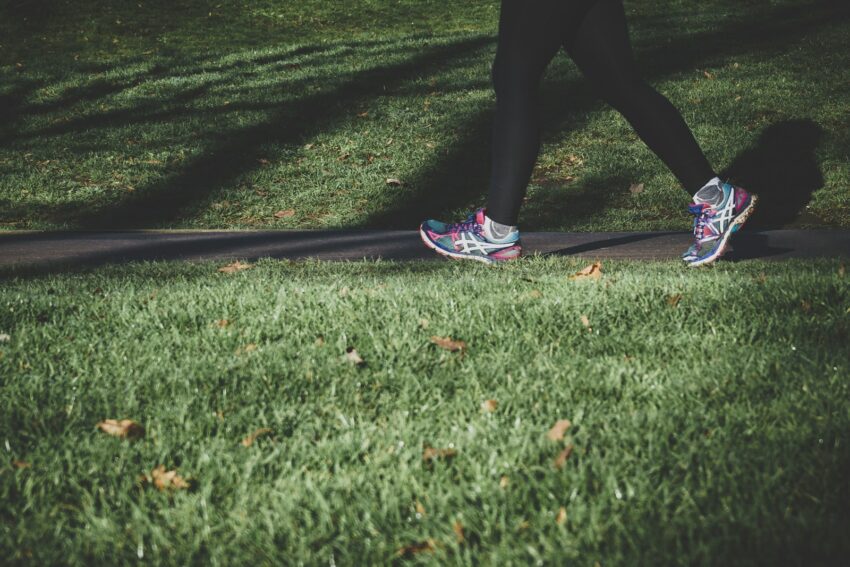Anxiety affects millions of people every day. While therapy and medication are important tools for managing anxiety, small daily habits can also make a big difference. The choices we make—how we move, eat, breathe, and connect with others—directly influence how calm or anxious we feel.
By building healthy routines, you can support your mind and body, reduce anxiety symptoms, and improve overall well-being.

Why Daily Habits Matter
Anxiety is closely tied to the body’s stress response. When stress builds up, the body stays in “fight-or-flight” mode, which increases worry, tension, and physical symptoms like rapid heartbeat and shallow breathing. Daily habits help activate the parasympathetic nervous system—the body’s natural “rest-and-digest” mode—which brings balance and calm.
The World Health Organization (WHO) estimates that 301 million people worldwide live with an anxiety disorder【WHO, 2022】. While professional help is important, daily self-care habits can play a powerful role in managing symptoms.
Daily Habits to Reduce Anxiety Naturally
1. Start the Day with Deep Breathing
Breathing exercises calm the nervous system and lower stress hormones. Starting the morning with just a few minutes of slow, deep breathing sets a peaceful tone for the day.
Try this: Inhale through your nose for 4 seconds, hold for 4 seconds, and exhale slowly for 6–7 seconds. Repeat for 5 minutes.
A study in Frontiers in Psychology found that deep breathing reduces cortisol (the stress hormone) and increases feelings of calm【Ma et al., 2017】.
2. Move Your Body Every Day
Exercise is one of the best natural remedies for anxiety. Physical activity releases endorphins, which improve mood, and helps regulate sleep and stress.
- Aim for at least 30 minutes of moderate exercise most days.
- Activities like walking, jogging, dancing, or yoga all count.
- Even short 10-minute walks can reduce anxious thoughts.
The Anxiety and Depression Association of America (ADAA) reports that regular exercise can reduce anxiety by up to 40% in some individuals【ADAA, 2020】.
3. Limit Caffeine and Sugar
Coffee, energy drinks, and sugary snacks can make anxiety worse by spiking energy and then causing crashes. Caffeine increases heart rate and can mimic symptoms of panic attacks.
Healthy swaps:
- Replace coffee with herbal tea, such as chamomile or peppermint.
- Choose whole foods and complex carbs instead of sugary snacks.
Research in General Psychiatry found that high caffeine consumption is linked to increased anxiety and sleep problems【Lara, 2010】.
4. Practice Mindfulness or Meditation
Mindfulness helps you stay present instead of worrying about the future or dwelling on the past. Daily practice, even for 10 minutes, reduces stress and improves emotional regulation.
Simple practice: Focus on your breath and gently bring your attention back when your mind wanders.
A meta-analysis in JAMA Internal Medicine found that mindfulness meditation programs significantly reduce anxiety, depression, and stress【Goyal et al., 2014】.
5. Prioritize Quality Sleep
Poor sleep and anxiety go hand in hand. Lack of rest increases irritability, worry, and difficulty concentrating.
Better sleep habits:
- Keep a consistent bedtime routine.
- Avoid screens at least one hour before bed.
- Make your bedroom cool, dark, and quiet.
The Sleep Foundation reports that people with insomnia are 17 times more likely to experience anxiety disorders【Sleep Foundation, 2021】.
6. Stay Hydrated
Dehydration can increase irritability, fatigue, and confusion—symptoms that can worsen anxiety. Drinking enough water supports brain function and stabilizes mood.
Tip: Aim for 6–8 glasses of water a day, and more if you’re active.
7. Connect with Supportive People
Isolation fuels anxiety, while connection brings relief. Talking with friends, family, or peers reduces feelings of loneliness and helps you feel understood.
The American Psychological Association (APA) highlights that social support lowers stress and improves mental health outcomes【APA, 2020】.
Daily habit: Make time for at least one meaningful interaction each day, even if it’s a phone call or quick check-in.
8. Journal Your Thoughts
Writing down worries helps release them from your mind. Journaling provides clarity, reduces rumination, and increases problem-solving.
Try this: Each night, write down three things you’re grateful for and one worry you want to let go of.
A study in JMIR Mental Health found that expressive writing significantly reduces symptoms of anxiety and improves emotional well-being【Smyth et al., 2018】.
9. Spend Time in Nature
Being outdoors lowers stress hormones and calms the nervous system. Even a short walk in a park can reduce anxiety.
The Environmental Health and Preventive Medicine Journal published a study showing that walking in nature lowers cortisol levels and improves mood more than walking in urban areas【Park et al., 2010】.
Daily habit: Spend at least 20 minutes outside—whether in your backyard, a garden, or a nearby park.
10. Practice Gratitude
Gratitude shifts focus from worries to positive experiences. Writing down or reflecting on what you’re thankful for helps reframe negative thinking.
The Greater Good Science Center at UC Berkeley found that gratitude practices increase happiness and reduce symptoms of depression and anxiety【Emmons & McCullough, 2003】.
Daily habit: Keep a gratitude journal or simply say out loud three things you are grateful for each day.
Putting It All Together
Building habits takes time. You don’t need to change everything at once. Start small—add one or two practices into your daily routine and build gradually. Consistency matters more than perfection.
Combining these habits creates a lifestyle that supports calm, resilience, and mental clarity.
Conclusion
Anxiety may be common, but daily choices have the power to ease its impact. Habits like deep breathing, exercise, better sleep, mindfulness, and connecting with others help reduce stress naturally and build emotional strength.
